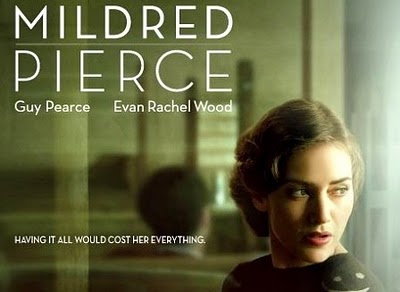You wouldn’t be entirely mistaken to assume Barefoot is a light-hearted romcom centering on a free-spirited hippie who doesn’t like to wear shoes, instead of the story of a naive mental patient falling in love with an inveterate womanizer and gambler. The former certainly seems to be what the movie is trying to be.

Directed by Andrew Fleming (of The Craft ) and adapted from the 2005 German film, Barfuss, Barefoot is emotionally manipulative, full of unchecked exploitation, sexism and ableism and worst of all, portrays a woman who supposedly has severe mental illness as something akin to a fairy tale princess. As Daisy Kensington, Evan Rachel Wood spends most of the movie wandering around slack-jawed and amazed by everything she encounters. She’s scared of airplane toilets, thinks driving a car gets you pregnant, is flattered to be asked to perform a hand job (“I’ve never had a job before!”), and on one occasion, asks her companion and pretend boyfriend if she can “go potty.”
Though she tells her doctor in an early scene that she hears voices, the extent of her mental instability as portrayed in the film appears to be panic attacks and extreme naivete caused by being raised in isolation, only interacting with her recently deceased mother for her entire life. Instead, she’s quirky, she knows how to dance because she watched hours of VH1 growing up, she doesn’t like to wear shoes because they hurt her feet, she has no qualms announcing at a fancy dinner, that foie gras looks like cat food. It’s no wonder, Jay Wheeler (Scott Speedman), the estranged son of a wealthy family falls in love with her. Like any manic pixie dream girl worth her salt, she makes his life better, teaches him to take responsibility for her actions and learn how to love. As a free spirit, she strips away from pretentious facade of his family’s extreme wealth and teaches them to value small moments.

And of course, right at the end of the movie, it’s revealed that Daisy isn’t crazy after all, so she and Jay can ride off into the sunset together, any complications from her total lack of knowledge of the world or of literary any other person besides him be damned. Watching it, I wasn’t sure to what degree a movie that suggests a character is mentally ill, yet portrays her illness inaccurately for most of the film is redeemed by a last minute revelation of her sanity. Indeed, the revelation comes about from an investigation of Daisy’s past, not from an analysis of her behavior.
Right from the start, Jay is always saving her. Their “meet cute” occurs when he swoops in to rescue her from an orderly who is attempting to molest her, under the pretense of a secret exam. He has no sympathy for Daisy’s innocence or the real issue of abuse suffered by powerless mental patients, instead telling her she needs to learn to take care of herself. Shell-shocked, she escapes the hospital and follows him home, already acting like he is her messiah.
But Jay’s certainly no prize. He’s on probation for assault, holds down a job as janitor at the mental hospital and regularly gives alcohol and pornography to the most catatonic and psychotic patients. He owes thousands of dollars in gambling debts and believes his only option to get the money is to attend his brother’s upcoming wedding with a serious girlfriend, so his family see he’s got his act together.
Originally, he tries to hire a stripper to pretend to be his girlfriend. He’s stunned she considers it degrading and tells him the idea of pretending to be a nurse (used as a fetish object) makes her uncomfortable. A choice quote: “You hump a pole naked for money and this makes you uncomfortable?” Throughout the film, Jay speaks to women like they are children, here insisting the stripper owes him a favor because he is a loyal patron and insinuating that she is unintelligent. After this rejection, Jay sees an opportunity in Daisy, a woman he can easily manipulate.

In the film’s world, Daisy’s mental illness gives him permission to talk to her like a child, instructing her that they’re not lying, only pretending and he’ll explain the difference to her later. He is allowed to tell her anything, ordering her to be quiet, to go to sleep, even telling her what to say and how to dress, like his doll. It seems incredibly abusive that he gives her low-cut and revealing clothes borrowed from a stripper to wear on the trip, given that she does not understand their sexual undertones and did not chose to wear them. In one scene, a maid is shown unpacking her suitcase, which included several pieces of sexy lingerie and corsets.
She has to trust him, because he knows things that she doesn’t. When he fleetingly calls her his girlfriend to explain their relationship, she takes him seriously, believing they have an actual relationship. She says it’s always been her dream to be someone’s girlfriend, something her mother told her would never happen. Note that she never refers to the dream of having him as her boyfriend, it’s all she’s ever wanted to be the object, his possession.

Later on, Jay starts to feel romantic feelings towards Daisy only after she brags about his accomplishments to his family, expanding on the script he gave her. They bond over not being understood, she never went to school and he think of no reason.
After knowing her for only a few days, Jay believes (and is proven right) to have a better knowledge of her condition than her doctor and they quickly become a happy couple, driving around holding hands.
He seems to truly fall in love with her when she tricks a suspicious cop into leaving them alone with her charm, explaining she did it so they can be together. When she despairs that she “can’t do the things other people can do,” he patronizingly explains that by escaping the hospital and helping him lie to his family and evade arrest, she’s been learning how to become a responsible person in the real world.
Near the end, the film flirts with the notion of real consequences when Daisy admits that she was in the hospital because she killed her mother. But alas, she’s only hyperbolic and misunderstood, she didn’t go help her mother when she heard her screaming and thought that meant she killed her. In addition, Daisy never heard voices–her mother did, and kept Daisy isolated because of it.

So everything ends up fine. The girl Jay took from the mental hospital isn’t crazy, she shouldn’t even be in the hospital. By taking her, he saved her from misdiagnosis.
Their love is held up as true love. She has no frame of reference, but she knows its’s love because “you just know.” This opinion, which she tells her doctor, is taken as true wisdom. In the end, Daisy is released to begin her real relationship with Jay, instead of going to a group home where she can learn basic skills. In the last scene, her bare feet are highlighted, a sign that she’s still a quirky, free-spirit, even though she’s officially sane.
In Barefoot, Daisy is othered as a mental patient. She and Jay are introduced as being from two different worlds, he has a job and an apartment and responsibilities and she is a patient, unable to take care of herself. Her instability is used as a way to create division between her and Jay and to give him authority over her. It’s used as a way to create a bright-eyed innocent who believes every interaction between a man and a woman is true love and is fully ignorant of the modern world and social mores without entering fantasy dimensions. It’s probably an unsuccessful attempt to avoid being considered sexist: she’s not stupid or childish or an alien fetish object, she’s mental unstable. However, the decision to make this sort of character mentally ill makes an already tired love story truly uncomfortable.

When she has a panic attack at the wedding and Jay’s family learn who she really is, her condition paints her as inhuman, someone that everyone needs to talk to in hushed tones, stop everything they were doing and coddle and stare at her. In one scene, a flight attendant loudly asks Jay while Daisy is present, what is wrong with her, highlighting that she is not an independent person but his charge.
When she is briefly returned to the hospital, Daisy contrasted with the other more patients who present more cinematic markers of mental illnesses, such as delusions, paranoias, unkempt appearance and strange voices, to make it clear that she doesn’t belong there. Only by separating Daisy from the idea of mental illness, does the film gives her back her humanity and develop her. To become no other, a person viewers can identify with, she has to become “not crazy.” We’re only meant to sympathize with her, when the hospital becomes a nightmare she is wrongly trapped in.
Just once, I’d like to see a movie where a person falls in love with someone with a mental illness and realizes their partner is actually ill and needs help they cannot provide alone. Or their partner makes an informed decision to support them and becomes educated in strategies for helping them cope. In Barefoot, mental illness is just quirkiness, a lack of social graces that makes a person honest and selfless, it requires no real adjustment. And as with Daisy, it might not even be real.
____________________________________
Elizabeth Kiy is a Canadian writer and freelance journalist living in Toronto, Ontario. She recently graduated from Carleton University where she majored in journalism and minored in film.
____________________________________________________________________
Also on Bitch Flicks: , Crazy Bitches Versus Indulgent Little Girls: The Binary of Mad Women in Girl, Interrupted



